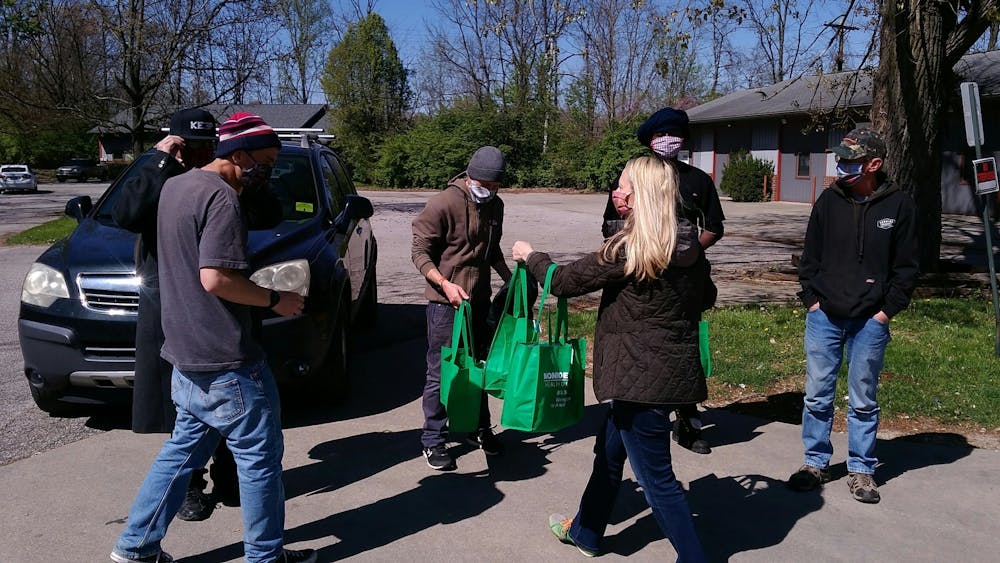The Monroe County Health Department has partnered with Wheeler Mission, which runs multiple homeless shelters in Bloomington and throughout Indiana, to train volunteers experiencing homelessness for a peer educator program and distribute COVID-19 sanitation kits.
The program started April 17, and so far there are five trained volunteers who go into the community to pass out the kits, which include a bandana, hand sanitizer and an informational card on how to lessen the spread of the coronavirus. Cardinal Spirits and The Mad Optimist, two Bloomington companies, donated bottles and info cards, respectively.
Chris-Michael Morrison, Bloomington Wheeler Mission director of advancement, said the volunteers are a part of the homeless community and are able to get access and educate them where the health department can’t. It also helps ensure that people experiencing homelessness can stay healthy, considering they're a group the Centers for Disease Control and Prevention consider high-risk.
“This is a life-and-death situation,” Morrison said.
The volunteers don’t change where they spend time to pass the kits out because they meet with people who need them every day, Morrison said. The program is about educating peers to keep these communities safe.
“These supplies are disseminated as much as possible to those in our community that are not necessarily in shelter,” he said.
MCHD health educator Kathy Hewett said between the pandemic and the low number of employees working at the health department, everyone is stretched thin and can’t dedicate all their time to helping in one area, which the peer programs help with.
The volunteers learn marketable skills, such as experience in organization and teaching, Hewett said. By giving volunteers skills and references to help them get a job, it’s easier for them to find stable housing.
MCHD public health coordinator Christina Kempf said the program already feels like a success because they have five men acting as “frontline soldiers” to educate the community, wearing masks and carrying bags of supplies. She said health education is a field where the educator may never see the results of it, but that doesn’t mean people shouldn’t try.
The volunteers are also teaching the health department some things as well, she said. One volunteer gave feedback that some people may find masks difficult to wear because of trouble breathing, so bandanas were provided within the kits.
Kempf said she was excited by how eager the peer mentors were to volunteer. She said one volunteer went out for an hour and a half after receiving a bundle of kits, passing them out and talking to everyone he met about how to keep themselves safe from the virus and how to lessen their chances of contracting it.
“They are out there planting seeds for us,” Kempf said.




